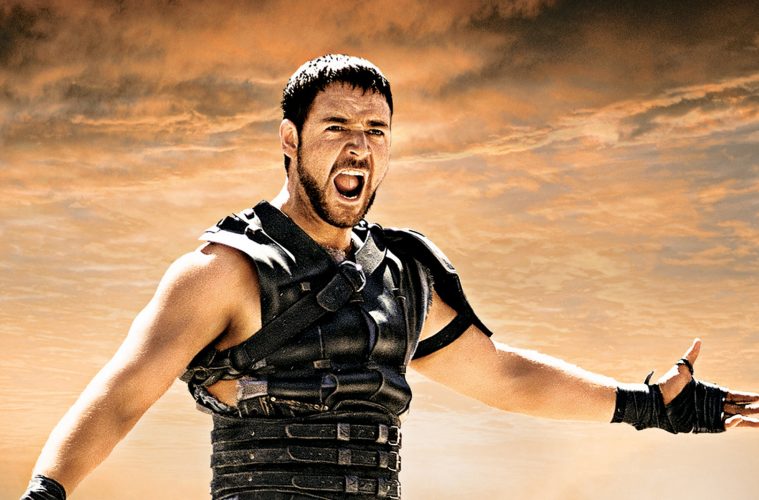I got one of my undergraduate degrees in history and am a certified history nerd. I listen to podcasts like Hardcore History and History Extra and am willing to consume just about anything related to topics I love. I’ve probably read every book in the world that talks about the wives of Henry VIII (even though they never tell me anything new) just because I love that era so damn much.
For a time I ran a blog that was about historical inaccuracies in movies, the Braveheart entry of which was adapted for Minerva. It’s not news to anyone that Mel Gibson ran over historical fact with a steamroller. But that didn’t stop the movie from winning an Oscar.
In fact, period pieces get nominated for awards every year, and every year people start fighting about the facts in the movies. Is it important the writers conflate people and events? Does it matter if they shorten a timeline? Or the latest debate about Hamilton: is it important that the musical glosses over Hamilton’s more elitist tendencies? Does the diverse casting gloss over the fact that almost every named character in actual history was a white person?
There’s always been a struggle between telling a good story and correctly relaying the facts.
So where should the line be drawn? Should we hold filmmakers to historically accurate standards? My heart really wants to say yes. After all, what’s the point of telling a story that’s based on truth if it’s not at all true? Why completely screw up events that already happened when so many of us are already historically illiterate?
Take as an example, Gladiator, one of my favorite movies to hate on. In the film, Commodus is a generally creepy jerk and ends up getting revenge stabbed by Maximus and dies. The film actually tones down his antics so much, it infuriates me. Commodus regularly fought in the arena—he wanted to be a gladiator and a savior of his people. He was eventually strangled to death in the bath by the wrestler Narcissus. This was after his mistress Marcia tried to poison him. Oh, did I also mention that Commodus had two sisters, a wife, and multiple mistresses? This movie could be full of ladies plotting to kill a gladiatorial-crazed emperor! Why did Ridley Scott decide fictional man-pain was better (to be fair, this is the director who white washed the hell out of Exodus).
In cases like Gladiator, I think fact is far more interesting than fiction, and that’s my main beef for changing things around. If directors want to tell audiences the most compelling narrative, then they should use real life when it does the trick rather than falling back on Hollywood conventions.
I stumbled across another interesting argument while researching my undergraduate thesis. In the book Tudors and Stuarts on Film: Historical Perspectives, the editors suggested in the introduction that making movies historically inaccurate is a problem because after they see the film, people will forget where they learned that historical information and assume they read it somewhere. This means every stupid thing you see in a movie eventually gets confused in your mind as “Something I read somewhere once” which then ingrains historically inaccurate facts and scenes in our minds. That’s not great.
But there’s also a part of me that knows sticking to the facts isn’t fair. In fact, it’s usually not possible. We have our best guesses for how people acted and what they did a lot of the time, but that’s what they are: guesses. You can’t create a good dramatic film that centers around Anne Boleyn and then hit a certain point and go, “Well, she probably didn’t sleep with those guys and this might be why Henry was tired of her, but just so you know, it’s all guesswork.” At some point you have to make a creative decision and stop weighing exactly what happened.
That’s where I start cutting some slack. There are a lot of fine period pieces that don’t stick to complete accuracy (Belle is one of my favorite films, and it plays fast and loose with fact at times), and I don’t think it’s fair to expect them to. There should be room for creative license. God knows you find it anywhere else. Sometimes creative license leads to great things. Not to harp on Hamilton, but casting all the main roles as non-white people has sort of turned the theater world upside down. How often to do we see casts that aren’t largely white? Suddenly, we can look at the Founding Fathers and see something other than old white dudes, we see people we might want to know or be. This makes the musical work in a way it couldn’t have if someone had forced Lin-Manuel Miranda to be historically accurate.
And for the really popular, really inaccurate stories, you’ll always have a push back moment that ends up educating people. Apparently tourism to Scotland skyrocketed after Braveheart came out, and most people know it’s all sorts of wrong. So maybe in a way inaccurate history can lead to people finding out about things they never would have cared about in the first place.
It comes down to whether the entertainment you’re watching is good and the reasons it bends the facts. I find some films and TV shows cheesy and offensively untrue to what we know about the people and the time (Reign is the perfect example. I know it shouldn’t have to be accurate, but damn it, does it have to be so bad? Ditto to The Tudors. Make your Henry fat and tall already). But films that go far afield and tell a damn good story in the process? Well, maybe I don’t mind so much.
Header image via selfleadership.com


